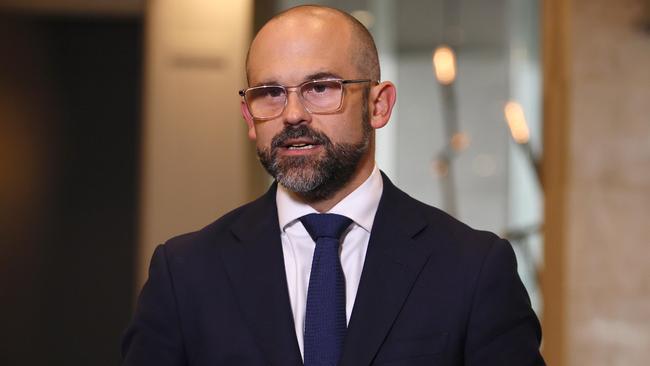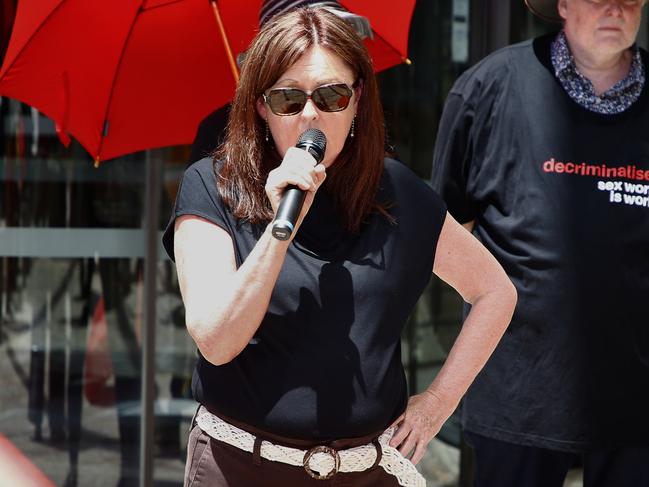Public service Qld: LNP government faces strike action in $2.8bn wage claim
The state government may need to find an extra $2.8bn over three years to fund big pay rises across the public sector or face rolling strike action.

QLD Politics
Don't miss out on the headlines from QLD Politics. Followed categories will be added to My News.
The state government may need to find an extra $2.8bn over three years to fund big pay rises across the public sector or face rolling strike action across hospitals, schools, and police stations.
In the latest financial headache for the newly minted Crisafulli government, the administration will need to negotiate new three-year pay deals with three major arms of the frontline public sector in the next few months.
The enterprise bargaining deal with the Queensland Nurses and Midwives’ Union (74,000 members) expires in March this year with formal negotiations to begin with Queensland Health next week.
The agreement with teachers and frontline police expires in June 2025, paramedics in August this year, and the rest into 2026.
Queensland’s top union boss Jacqueline King says the labour movement is hopeful of securing a central wages policy – as had been secured before – to lock in the same wage rise for the state’s 270,000 public servants.
She said the Queensland Council of Unions, together with the major public sector unions, would push for a broad package of entitlements including better housing incentives and a wage increase above inflation.
Ms King said a salary jump request could be around 5 per cent per annum over three years. Rolling strikes are on the cards if demands aren’t met.
“If we can’t reach an agreement, that’s always on the cards … it will be for the membership to decide,” she said.

Labor, in its final budget in government, locked in a 2.5 per cent wage increase over the next three years with Treasury estimating every percentage point increase in pay above what was expected would cost $352m.
If a 5 per cent pay rise is agreed, this would set back Treasurer David Janetzki about $2.8bn through the life of the agreement based on the budget he inherited.
The expense burden builds on a $24bn budget black hole caused by inherited budget blowouts across health, water, energy and transport and new cash for the Bruce Highway.
QNMU secretary Sarah Beaman said the latest negotiations would happen against the backdrop of major strikes by nurses and midwives in Victoria and New South Wales to secure better pay and conditions.
“Unlike other highly unionised workforces, nursing and midwifery is a profession which rarely takes industrial action and we do so only when all other options for solutions are exhausted,” she said.
QTU president Cresta Richardson said the union was looking for a deal that acknowledged the day-to-day challenges faced by teachers, including rising cost of living, and increasing occupational violence and aggression in classrooms.
Mr Janetzki is set to release the long-awaited mid-year budget review next week.
He said the government would negotiate with the unions in good faith and reiterated a pledge to deliver a stronger and reinvigorated public service.
“We have long argued that building capacity in the public service and empowering it to manage projects will drive down project overruns and reduce cost-of-living pressures on Queenslanders,” Mr Janetzki said.
The LNP’s election promises included hiring 34,000 more health workers by 2032 and 1600 more police officers by the end of their first term.





